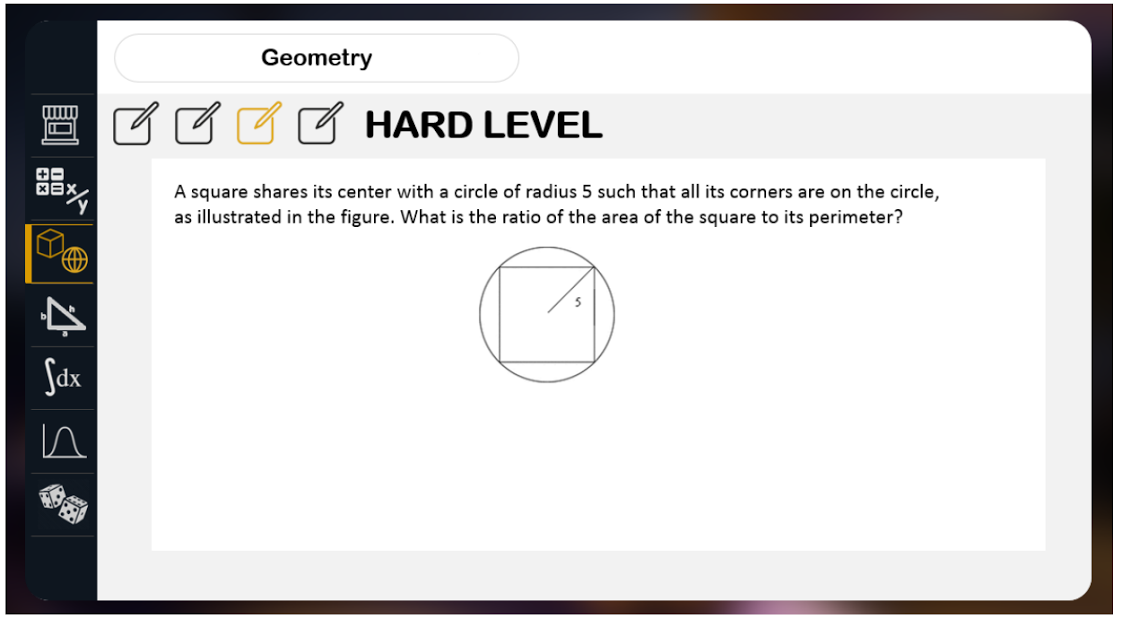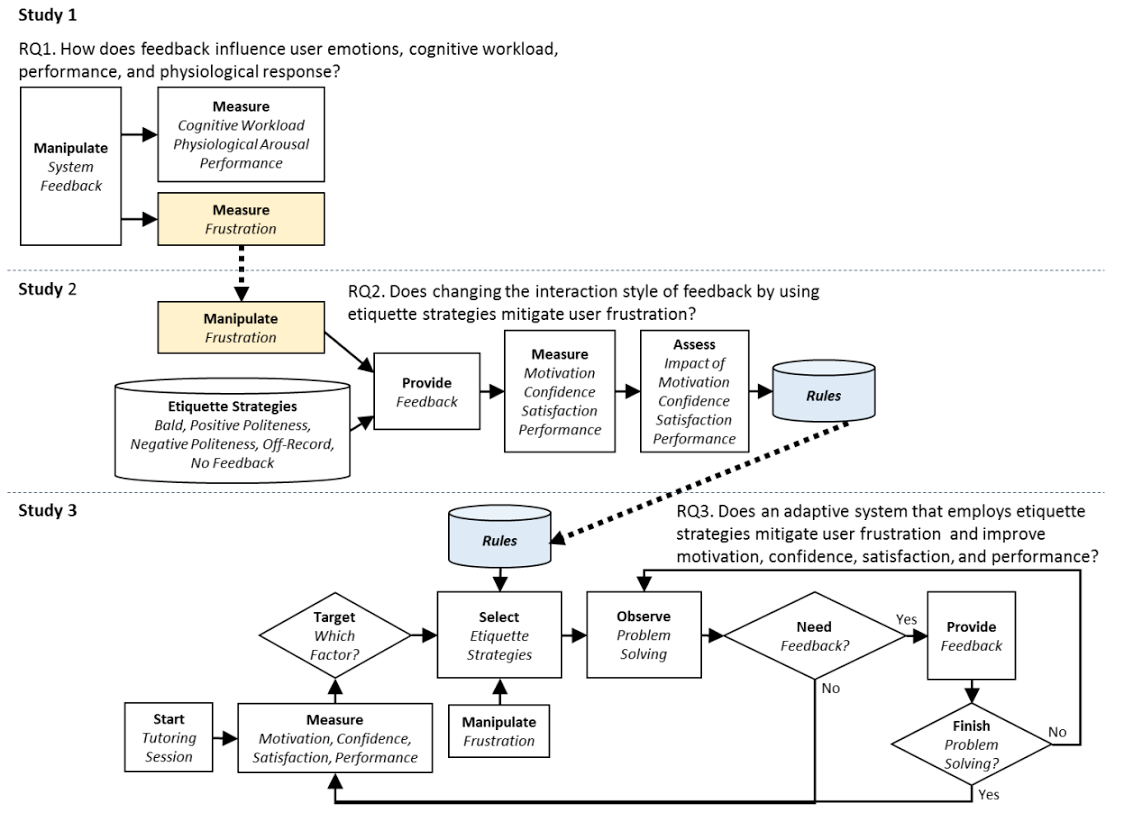User frustration in HCI indicates a negative feeling that occurs when efforts to achieve a goal are impeded. User frustration impacts not only the communication with the computer itself, but also productivity, learning, and cognitive workload. Affect-aware systems have been studied to recognize user emotions and respond in different ways. Affect-aware systems need to be adaptive systems that change their behavior depending on users’ emotions. Adaptive systems have four categories of adaptations. Previous research has focused on primarily function allocation and to a lesser extent information content and task scheduling. However, the fourth approach, changing the interaction styles is the least explored because of the interplay of human factors considerations.

Three interlinked studies were conducted to investigate the consequences of user frustration and explore mitigation techniques. Study 1 showed that delayed feedback from the system led to higher user frustration, anger, cognitive workload, and physiological arousal. In addition, delayed feedback decreased task performance and system usability in a human-robot interaction (HRI) context. Study 2 evaluated a possible approach of mitigating user frustration by applying human-human etiquette strategies in a tutoring context. The results of Study 2 showed that changing etiquette strategies led to changes in performance, motivation, confidence, and satisfaction. The most effective etiquette strategies changed when users were frustrated. Based on these results, an adaptive tutoring system prototype was developed and evaluated in Study 3. By utilizing a rule set derived from Study 2, the tutor was able to use different automation etiquette strategies to target and improve motivation, confidence, satisfaction, and performance using different strategies, under different levels of user frustration.
This work establishes that changing the interaction style alone of a computer tutor can affect a user’s motivation, confidence, satisfaction, and performance. Furthermore, the beneficial effect of changing etiquette strategies is greater when users are frustrated. This work provides a basis for future work to develop affect-aware adaptive systems to mitigate user frustration.
This work establishes that changing the interaction style alone of a computer tutor can affect a user’s motivation, confidence, satisfaction, and performance. Furthermore, the beneficial effect of changing etiquette strategies is greater when users are frustrated. This work provides a basis for future work to develop affect-aware adaptive systems to mitigate user frustration.

